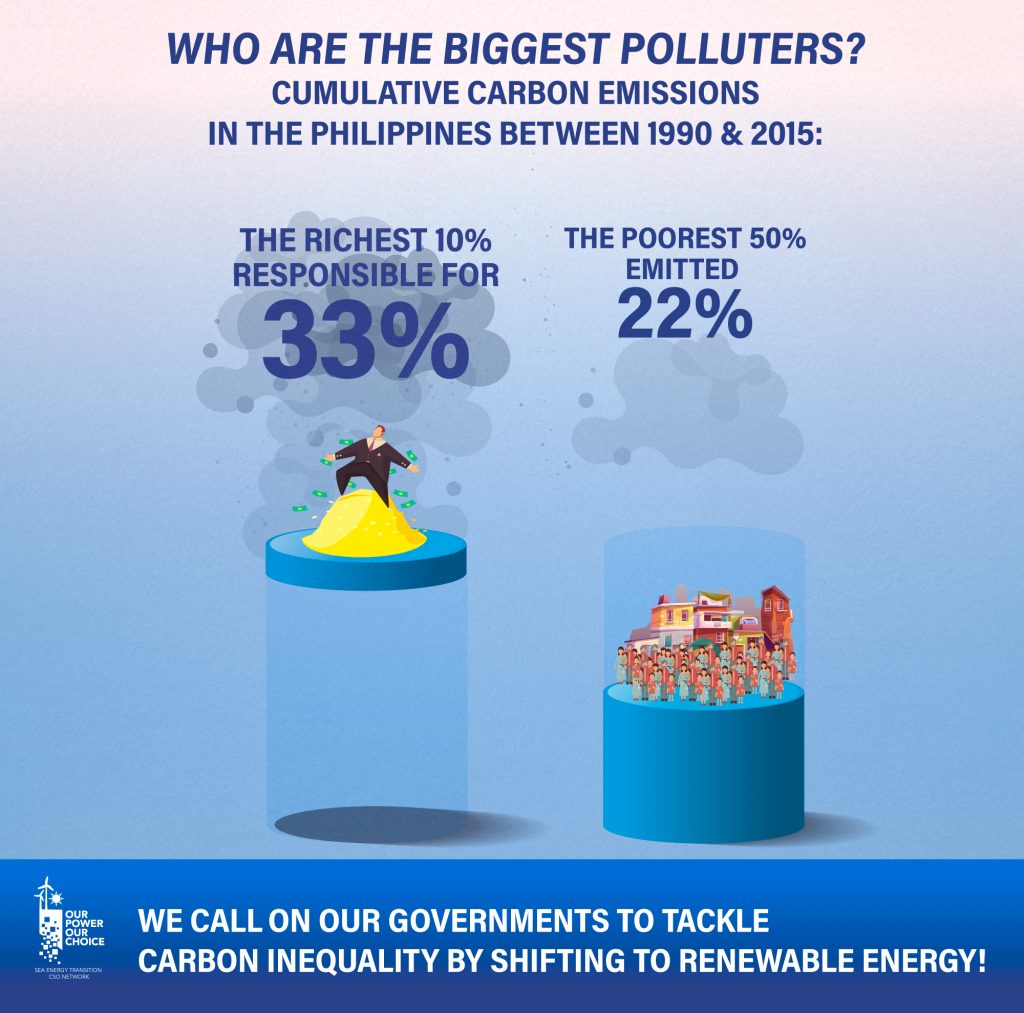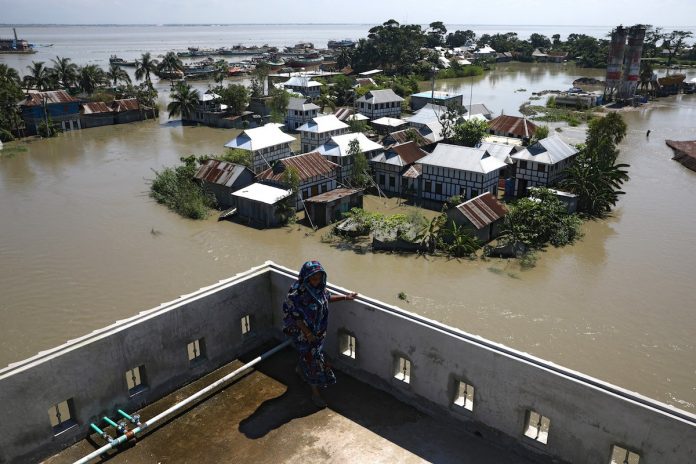The huge disparity between the rich and the poor is not only apparent in social status, but also in the way they affect climate.
This was revealed in a new study released by aid agency Oxfam in September but announced to the media on Thursday, October 22.
The media brief titled “Confronting Carbon Inequality” by Oxfam International noted that the wealthiest 10 percent of Southeast Asians, in countries like the Philippines, are responsible for a third of the national carbon consumptions.
The study said the rich’s carbon consumption is four times as high as the average footprint of the poorest 50 percent of the population.
“In the Philippines, the wealthiest ten percent used up over a third of the carbon emitted nationally,” said Lot Felizco, country director of Oxfam in Philippines.
“When we look at such data, it’s clear that while the richest benefit, the rest of us are left facing the consequences,” said Felizco, adding that the poor, women, and the disadvantaged groups “will face the brunt of the climate crisis.”
The study also noted that Asia and the planet have gotten hotter, with the continent being the epicenter of natural disasters and displacement of people due to disaster.
Poorest and marginalized people have been hit hard by multiple extreme weather events in Indonesia, severe typhoons in the Philippines, and droughts across the Mekong Delta.
In 2013, the Philippines made headline news globally, as it was hit by Typhoon Haiyan, touted as the “strongest typhoon in the world,: which claimed the lives of thousands and left millions worth of damages at its wake.
While the prevailing global COVID-19 pandemic and subsequent lockdowns have resulted in a decline of emissions globally, they are likely to rebound rapidly as governments ease lockdowns and countries return to business as usual, noted Oxfam’s report.

Lidy Nacpil, coordinator of the Asian People’s Movement on Debt and Development, said there is a need “to change how our energy is created and consumed.”
“Our nations and leaders must commit to investing in renewable energy. It is economically better for us and our countries,” she said.
The study said that if the region – one of the fastest-growing in the world – fails to contribute, the planet will heat up by another 1.5OC by 2030, a tipping point with no return.
The cut back of emissions by the top decile and ending investment and generation of fossil-fuel energy are essential in keeping the planet’s temperature at levels required for human survival.
The carbon inequality is so stark that the wealthiest ten percent globally would alone push the temperature beyond the tipping point by 2033, even if all other emissions were eliminated.









